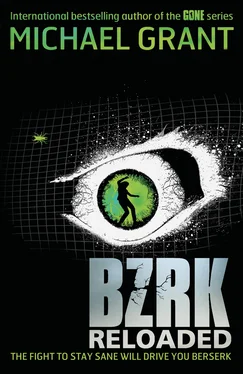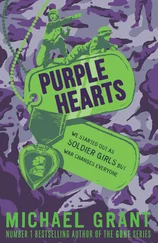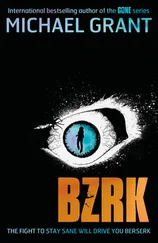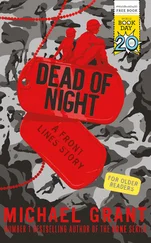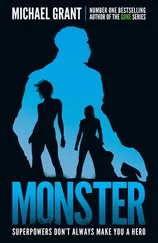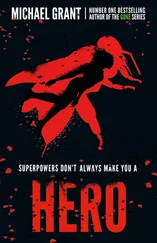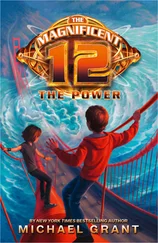MoMo groaned in the shower. Nonsense sounds, not words, but still she had to hurry.
She slid back the shower door, knelt down, put her hands under his arms, and dragged him the five feet to the tub. That much was easy: he was wet and soapy, and the floor was tile.
The harder part was pushing him up over the side of the tub. For the scenario to work it would have to seem as if he’d slipped and smashed his head against the side of the tub. It would be a long night of making sure that bloodstains were only in exactly the right places. The president would be scrubbing.
She manhandled MoMo into the rising water in the tub. Now he was moaning and moving feebly, like a sleepwalker, like a drunk, uncoordinated.
He splashed into the tub.
His eyes fluttered open as she ground the bloody wound against the back of the tub.
“Mwuh?” he managed to say.
Mustn’t leave handprints. Had to do this right. She pressed her palms against his chest and leaned her weight on him until his head was completely submerged.
His dark eyes blinked, seemed to gain awareness for just a moment, and his arms came up out of the water to push back . . .
Too late. His lungs filled.
He vomited into the water.
And then she no longer had to hold him down. MoMo wasn’t going anywhere.
It would be a tragedy. The nation would mourn. She would get a ten-point sympathy bounce in the polls.
Her secrets would be safe.
A sob heaved up from inside her. She loved him. She loved him with all her heart.
And she had just murdered him.
In an office in a building on the 1800 block of Pennsylvania Avenue, just streets from the White House, Bug Man tore the gloves from his hands.
He was shaking.
He felt sick. He climbed out of the chair, made it five steps on the way to the very nice executive bathroom before falling to his knees, gasping as if he’d been running a marathon.
He had been.
Down in the meat, down in the nano, he had been racing his exploding-head-logo nanobots, laying wire like some demented lineman from elements of the president’s ego, her self-image, to images of MoMo.
Bug Man had long since cauterized a number of areas storing what might be called ethics or morality. In fact, they weren’t that, they were memories of books, sermons, lectures, and—much more powerful—the images of victimization from her childhood in San Antonio that formed the basis of her core decency.
Like most politicians, and all presidents, she had a strong ego. She’d always had well-developed instincts for survival, what some would describe as ruthlessness. But it had been balanced by pity, kindness, fellow feeling, love.
Bug Man had needed a less moral, more ruthless person. He had needed her simplified—the better to manipulate, the better to convince her to give Rios and his brand new government agency free rein to quash any unhelpful investigations, to oppose any international action.
So Bug Man had made her that. He had needed her to be suggestible to paranoia; he had needed to be able to plug that heightened aggressiveness and ruthlessness into pictures of any and all whose actions might threaten the Armstrong Fancy Gifts Corporation.
Yes.
Well.
Brains are subtle things. Some miswiring had created the twitches and tells that had alerted MoMo to changes in his wife. The president’s heightened aggression combined with weakened restraint had led now to murder.
But for the last desperate minutes Bug Man had not been trying to get Helen Falkenhym Morales to kill her husband MoMo. He’d been trying to stop her.
Once he’d seen where she was going he’d tried—way too little, way too late—to make her see MoMo as an extension of herself.
The only result was that later, too damned late, she would feel remorse. Guilt. Which would only create its own problems.
Bug Man was on his knees, blood pounding in his face, stomach churning with fear, waiting for the call.
When his phone did ring it still startled him.
He wondered how long he could go without answering. He wondered if he could keep from vomiting again. Or crying.
“Yeah,” he whispered into his phone.
“Oh, Anthony.” The voice was not the ranting fury of the Armstrong Twins. It was Burnofsky. “Anthony, Anthony: what have you done?”
“Jesus Christ!” Bug Man wailed. “I didn’t know the crazy bitch would—”
Burnofsky laughed his parchment-dry laugh. “Watch what you say. Washington is full of big ears.”
“What am I . . . What do . . .” He couldn’t even frame the question. His breathing was short and harsh. “The Twins . . .”
“Past their bedtime, fortunately. The only one watching the video feed was me.”
It was a sign of how frightened Bug Man was that he welcomed this news. He despised Burnofsky, but he was terrified of Charles and especially Benjamin Armstrong.
“But there will be no hiding this, of course,” Burnofsky went on.
Bug Man cursed, but there was no anger left in him. All was cold knife-steel fear now. The Twins—Charles and Benjamin Armstrong, those freaks—were not patient with underlings who screwed up.
The things they could do to him . . . An earlier error had been punished with a beating delivered by AmericaStrong thugs against Bug Man’s legs and buttocks. He still couldn’t sit in a chair without a handful of Advil. Now he had endangered everything.
“I’m a twitcher; I’m a fighter, not a goddamned spinner,” Bug Man pleaded with the phone. “I took down Vincent himself. I took down Kerouac before him. I’m the best. I’m important. They can’t kill me! This is—”
“Mmmm,” Burnofsky said, amused, gloating, already seeing in his opium-addled brain the price the Twins might demand. “You’re screwed, Anthony my young friend. There’s only one person on this green Earth who can save you. Do you know who that is, Anthony?”
Bug Man was trembling. Even now, no anger. Anger would come later, along with self-justification, but right now, with his face inches from the floor and his whole body feeling sick, Bug Man could only moan.
“Who, Anthony? Who can save you now, you arrogant little Limey shit? Say the word.”
“You,” Bug Man whispered.
Silence stretched as Burnofsky absorbed his rival’s defeat. Then the older man said, “Go limp. Power down. Go to your hotel, screw your girlfriend, but do nothing else until I tell you.”
The phone went dead. Bug Man rolled onto his side and cried.
Keats, whose real name was Noah, had not intended to go to Plath’s room, but there he was. He knocked.
“Yes,” she said. Not “Come in,” just “Yes.” Knowing it was him.
He stood framed by the doorway.
“You look like hell,” she said.
“So do you.”
And then they simply went for each other. They clutched and tore at each other, bruised each other’s lips.
Noah’s fingers dug into a handful of Sadie’s dark hair, and Sadie’s hands fumbled to push his shirt over his head, and his tongue was in her mouth, and her breasts were pressed almost violently against his hard chest.
They were alive when they should be dead, and sane when they could be mad.
So afraid. So lonely.
Vincent’s lunatic howl was fresh in Keats’s mind, still echoed in his ears, and the sight of Nijinsky breaking down in tears, and the awful memory of his big brother, of Alex, shrieking like an animal, chained to a cot in a hellish mental ward screaming, “Berserk! Berserk! BERSERK!”
Keats had imagined that their first time making love would be a study in tenderness. But this was not tender. They could hardly keep from hurting each other. They needed something that was not horror. They needed something that was not drenched in despair.
Читать дальше
